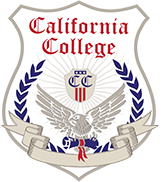Course Introduction
This diploma measures the basic skills of human resource professionals. It covers the following areas: recruitment basics, interviewing skills, and core concepts in human resources management. Holders of the HRP are capable of performing today’s job tasks and responsibilities in Human Resources. It helps you prove that you possess the foundational skills and knowledge necessary for success in your career.
Course Description
This program guides you to develop and implement “best practice” in your organisation. You will ensure that your employment contracts and HR manuals meet your business needs, whilst attracting, retaining, engaging and motivating employees.
In an increasingly competitive employment environment, when you want to attract and retain high performers, managing your employee relations and communications are increasingly critical tools that form part of your overall HR strategy.
This five-day course covers the key areas of HR policies and procedures so that you adopt best-practices to compete more effectively in the war to attract talent. You will learn how to improve employee engagement whilst developing trust and fairness for both parties in the employer-employee relationship.
Course Curriculum
•Strategic Human Resources
•Global Talent Management
•Compensation and Benefits
•Organizational Effectiveness
•Workforce Relations and Risk
Who Should Attend?
•Human Resources Specialists and other HR professionals at all career levels. AND This course is designed for everyone who requires either a generalist understanding or an in-depth knowledge of managing HR policies and procedures, and terms and conditions of employment. Many organizations develop ad hoc policies to solve immediate challenges. These policies are reactive to the situation rather than being proactive. Poorly developed policies lead to a lack of focus for both managers and employees.
Human Resource Management as a Strategic Function
A strategy is a plan of actions designed by senior management to achieve a favorable position in the competitive environment. HRM strategy can be defined as the open and hidden agendas of the organization, for managing its employees, to achieve its long-term aims and objectives (Tyson, 1995).
Strategic HRM covers the HR strategies adopted by the organization and tries to control its impact on performance (Lengnick-Hall et al. 2009).
Terminology used in strategy can be incoherent in the academic literature. However, more or less, every academic literature uses four main concepts when explaining strategy: mission, objective, vision and policy.
– Mission: dominant purpose, or overriding reasons of an organisation’s existence.
– Objective: statement of outcomes to be achieved within a time frame.
– Vision: a desired future state where the organization aspires to be.
– Policy: guidelines of organizational tasks.
The importance of HRM has increased with the unavoidable need for globalization. The rapid increase in globalization of businesses has created a fiercely competitive environment where the only effective way to remain in competition is to develop and improve the workforce. Organizational flexibility is vital for survival in these competitive markets and through the rapidly changing consumer trends. As a result there is a greater need for recruiting and retaining skilled workforce with multiple competencies than in the past.
Employee commitment and loyalty to the organization are also still problematic management issues to be solved almost on a daily basis.
The importance of HRM was also recognized not only on a national level but also on international levels.
As a response to effects of globalization and to an increase in the need for skilled workers in knowledge based industries, The European Union (EU) issued legislation the main aim of which is to be the most competitive knowledge-based economy and the most dynamic information society in the world by 2020.
The member states, including the UK, reduced the power of managers in the areas of hiring and firing, promotion and payments through various legislations that gave greater rights to employees especially in the areas of union membership, employee protection, age, gender and race discrimination (Banfield and Kay, 2017).
































